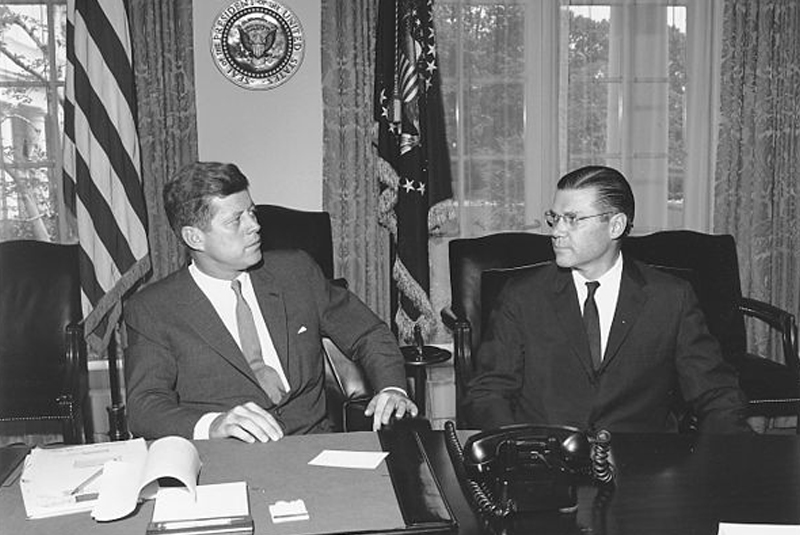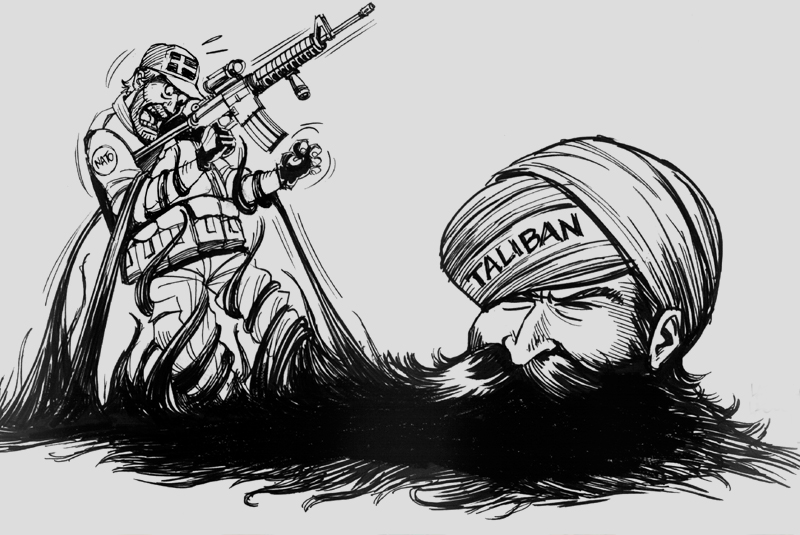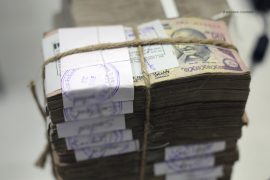The memoir of Robert S. McNamara, published 20 years ago, runs through and “presents” situations akin to the tragic drama (re)enacted today—a “repeat performance” of a monumental miscalculation gone awry.
The lessons of history have not been forgotten, unlike our far too clichéd or fixated norm, as our new history of Iraq’s “liberation” unfolds just in the wake of yet another, convoluted imbroglio in Afghanistan and Syria. It reminds us of one of the greatest debacles ever recorded in contemporary history: the Vietnam War. Besides, it would be no exaggeration to say that the abject fiasco of “whose war [is it anyway]?” did not end in that country. It has now extended to the “righteous,” albeit fanatical, wars we are witnessing today in the Middle East.
Back in Time
As we go back in history, through McNamara’s memoir, In Retrospect: The Tragedy and Lessons of Vietnam, we run through situations that are akin, for example, to the drama of Saddam Hussein’s ignoble downfall—including the militaristic, political and diplomatic “excursions”—the difference being the magnificent canvas of high-tech weaponry and worldwide TV and media coverage, 24 hours a day.
Fast forward to 2021, the names of the actors in this drama of the 1960s (John F. Kennedy, Lyndon B. Johnson, McNamara, General Maxwell Taylor, and National Security Adviser McGeorge Bundy) have been replaced with US “think tanks” of the 21st century (George W. Bush, Donald Rumsfeld, Barack Obama, Donald Trump, and the present Biden administration). We seem to have a near “repeat performance” of monumental miscalculations gone awry.
McNamara’s poignant memoir not only answers the lingering, albeit urgent questions that surrounded the US debacle in Vietnam, a disastrous episode in US history, but it also reveals articulately and forcefully a host of fatal misconceptions behind American involvement in Vietnam. Written with unsparing frankness and candor, McNamara’s portrait, drawn from a wealth of declassified documents, commands everybody’s attention. It has a lesson for us all even today.
When the newly elected President John F. Kennedy offered McNamara the post of secretary of defense in 1960—soon after he became president of Ford Motor Company—his reply was, “I’m not qualified.” As he himself confesses, “I had entered the Pentagon with a limited grasp of military matters and even less of covert operations.”
McNamara writes: “We of the Kennedy and Johnson administrations who participated in the decisions on Vietnam acted according to what we thought were the principles and traditions of this nation … We made our decisions in the light of those values. Yet, we were wrong, terribly wrong. We owe it to future generations to explain why.” Courageous words, although belated, from the most unlikely US secretary of defense.

McNamara also knew nothing of Vietnam. And so did all the others—President Kennedy, military adviser General Taylor and National Security Adviser Bundy, to mention just a few names. Why did McNamara accept the coveted job? Simply because Kennedy told him that there were no schools for defense secretaries, or for presidents.
If the “falling-domino” effect haunted the US throughout the Vietnam War, and beyond, McNamara always urged that US policy, so deeply frustrated by its inability to bring the war to a quick conclusion, be based on two principles: “[First, US commitment is] only to see that the people of South Vietnam are permitted to determine their own future … [and second,] this commitment ceases if the country ceases to help itself.”
It is a different matter that, in practice, McNamara did not go so far. Instead, he proposed “a politico-military strategy that raised the possibility of compromise.” What’s more, McNamara, much to the chagrin of the Joint Chiefs of Staff, also made, even if indirectly, a resolute effort to cut short the “bloody” war without a military victory. His problem was that he was willing to go so far and no further. Yet he never advised his bosses to have a solid exit strategy for Vietnam—something that he candidly admits was his “Himalayan” blunder.
This colossal mistake may have something that more than meets the eye, or the ear: The “S” in McNamara’s name stands for “Strange,” his mother’s maiden name. But what was still stranger was that this unusual word took a totally different turn during the Vietnam War: Far from being mild and apart from apparently contradictory epithets like “murderer,” “war criminal” and “peacenik,” the conflict was also called “McNamara’s War.” This, of course, is utterly ridiculous. For the simple reason that it misdirected the blame from a group effort, led by a brace of presidents, to just one individual.
Mistakes of the Future
What are the good things that come out of McNamara’s bold, remorseful, self-critical tome? First, his intention of publishing his memoir was not to justify his political decisions, but to expose them at whatever personal costs. Second, to set the record straight for public scrutiny. Third, and most importantly, it goes to McNamara’s credit—a pattern unknown in any nation’s public life—that he atones for himself and hopes that the lessons learned too late in Vietnam could be related to avoid similar mistakes in the future. If this is not honesty, a duty to one’s country, in spite of a host of dominoes falling by the wayside, what is?
As McNamara outlines, “Failure in one area contributed to or compounded failure in another. Each became a turn in a terrible knot. Pointing out these mistakes allows us to map the lessons of Vietnam, and places us in a position to applying them to the post-Cold War world. Although clear evidence has existed since the mid-1980s that the Cold War was ending, nations throughout the world have been slow to revise their foreign and defense policies, in part because they do not see clearly what lies ahead.”
McNamara, in so doing, also takes a logical look into the 1990 Iraqi invasion of Kuwait, the civil war in former Yugoslavia, and the turmoil in Chechnya, Burundi and elsewhere. He argues cogently that the world of the future will not be without conflict and racial ethnic tensions. He is also convinced that nationalism will be a powerful force across the globe. Political revolutions, he says, will erupt as societies advance. “In these respects,” McNamara notes, “the world of the future will not be different from the world of the past—conflicts within and among nations will not disappear. [However,] relations between nations will change dramatically…” Touché!
There are shades of Vietnam in Iraq, Afghanistan and other fronts to come. Is anyone at the helm listening, much less willing to turning the tide for a better world?
This story first appeared in fairobserver
-30-
Copyright©Madras Courier, All Rights Reserved. You may share using our article tools. Please don't cut articles from madrascourier.com and redistribute by email, post to the web, mobile phone or social media.Please send in your feed back and comments to [email protected]











